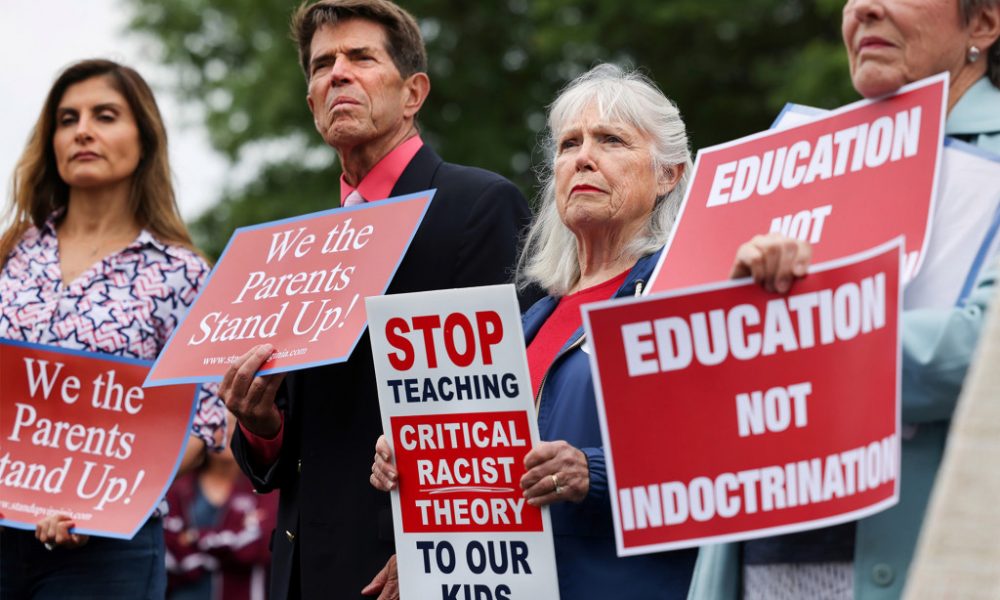Two of the nation’s largest teachers’ unions, the American Federation of Teachers (AFT) and the National Education Association (NEA), have responded to states banning the teaching of critical race theory in classrooms.
What We Know:
- Critical Race Theory is an intellectual framework that racism is systemic in the nation’s institutions and subsequent functions that maintain the dominance of white people in society. So far, six states have passed new laws limiting how race can be discussed in K-12 classrooms. Just last month, Texas Governor Greg Abbott signed a law forbidding schools to reach anything that causes “discomfort, guilt, anguish or any other form of psychological distress” because of a student’s race or sex.
- The AFT has vowed to protect members who are punished for teaching critical race theory, adding an additional $2.5 million to a preexisting legal defense fund. They are also considering filing lawsuits to receive clarification about new state laws limiting how racism can be discussed. President Randi Weingarten said in a virtual address, “Mark my words: our union will defend any member who gets in trouble for teaching honest history. Teaching the truth is not radical or wrong. Distorting history and threatening educators for teaching the truth is what is truly radical and wrong.”
- Weingarten also called for improved civics education and lessons to help students identify misinformation as well as covering current events such as the insurrection on January 6. The union recruited 20 teachers to begin producing classroom materials to cover these topics.
- The NEA has taken an even more combative stance. At their annual Representative Assembly, they approved funding for three separate items related to critical race theory: increasing critical race theory teaching in K-12 curricula, promoting critical race theory in local school districts, and attacking opponents of critical race theory.
- Previously, liberal pundits and activists like Weingarten have affirmed that critical race theory is not discussed in K-12 classrooms, but the NEA’s approach plunges full force into its discussion. The resolution that passed also promised to develop a study to critique “empire, white supremacy, anti-Blackness, racism, patriarchy,” among other concepts. They also plan to research the organizations that oppose critical race theory, including the parents of their students.
NEA President Becky Pringle stated, “If this grand experiment in democracy is to succeed, if the inhabitants of our nation are to prosper, we must continuously work to challenge ourselves and others to dismantle the racist interconnected systems and the economic injustices that have perpetuated systemic inequities.”
A recent survey conducted by YouGov says that 58% of Americans oppose the discussion of critical race theory. As more states draft legislation against its teaching, implications for the midterm elections begin to grow.



